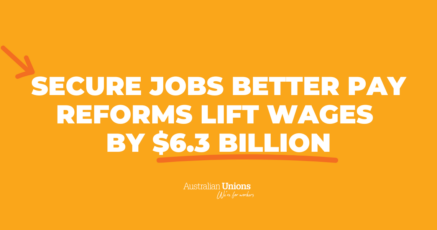It’s been a month since Professor Allan Fels AO release his report on the Inquiry into Price Gouging; and not a day has gone by in that time without the ongoing cost-of-living crisis making headlines.
We recently took a look at the eight ways big business are sneakily taking your money, which Fels explains as unfair, but not necessarily illegal, pricing practices.
The report also delves into the particular industries where there is a strong suspicion – or more – of price gouging, including aviation, banks, electricity, early childhood education and care, food and groceries and medical care.
The common link between most of them? A lack of competitors (usually due to entry barriers), a lack of consumer awareness and information, and a difficulty for consumers in switching suppliers.
The result: near-monopoly status for companies to hike prices and get away with it.
Aviation
Qantas dominates the Australian aviation industry, with Virgin Airlines running a distant second.
Its profits accelerated during the Covid-19 pandemic, during which the company received $2 billion dollars of support from taxpayers, $856 million in the form of Jobkeeper.
This didn’t stop Qantas from sacking 1,700 of its ground crew and staff – a decision found to be illegal and upheld in the High Court last year.
Prices remain sky-high for consumers in 2024, with research suggesting that a third player – in addition to Qantas and Virgin – is the key, helping to drop prices by as much as 40%.
Banks
Australia’s banking system is one of the most concentrated of advanced economies globally – at 91%! The big four banks – the Commonwealth Bank, ANZ, NAB, and Westpac – hold a significant amount of power over consumers.
So much so, in fact, that they have been able to raise their margins by enough to enable their profits to have been higher through the period of the pandemic than they experienced on average in the 15 years before the pandemic – and that’s taking into account the mining boom period, the GFC, and the recovery.
Electricity
The electricity market is complex, often opaque to consumers, and highly concentrated – particularly at the wholesale and retail level.
For over a decade consumers have endured rising electricity prices, and it’s not slowing down: wholesale prices made up 33% of a typical bill in 2022-23, but now make up 43% of the same bill in 2023-24.
Food and groceries
Australia’s food and groceries sector is among the most concentrated in the world (feels like we’re we’ve heard that somewhere before…)
In fact, the Colesworth duopoly (Coles and Woolworths) controls 65% of the groceries market nation-wide.
Business for the big supermarkets thrived during the Covid-19 pandemic, and profits continue to soar post-pandemic: both Woolworths and Coles have announced huge half-yearly profits of $929 million and $594 million respectively.
Part of this is due to the substantial power imbalance between the big supermarkets and the farmers who supply fresh products. When these products hit the store shelves, they’re significantly marked-up, and Coles and Woolworths pocket the difference in mega profits.
Out of pocket charges by medical specialists
Worryingly, prices have seen a 50% increase in real terms from 2012-22, far outstripping wage growth over that same period.
The reality is that many Australians are unable to afford specialist care – and these out of pocket costs are one of the main barriers to health care accessibility.
So now that we know the main ways big business are boosting their profits, and in which industries the biggest culprits are – what do we do about it all?
Tune into our third and final breakdown, coming soon, as we take a look at the practical solutions that the Inquiry report recommends.
In the meantime, if you haven’t already: join your union. Union members will always be at the forefront of holding big business to account.







SHARE:
Profiteering in a cost-of-living crisis: The biggest culprits